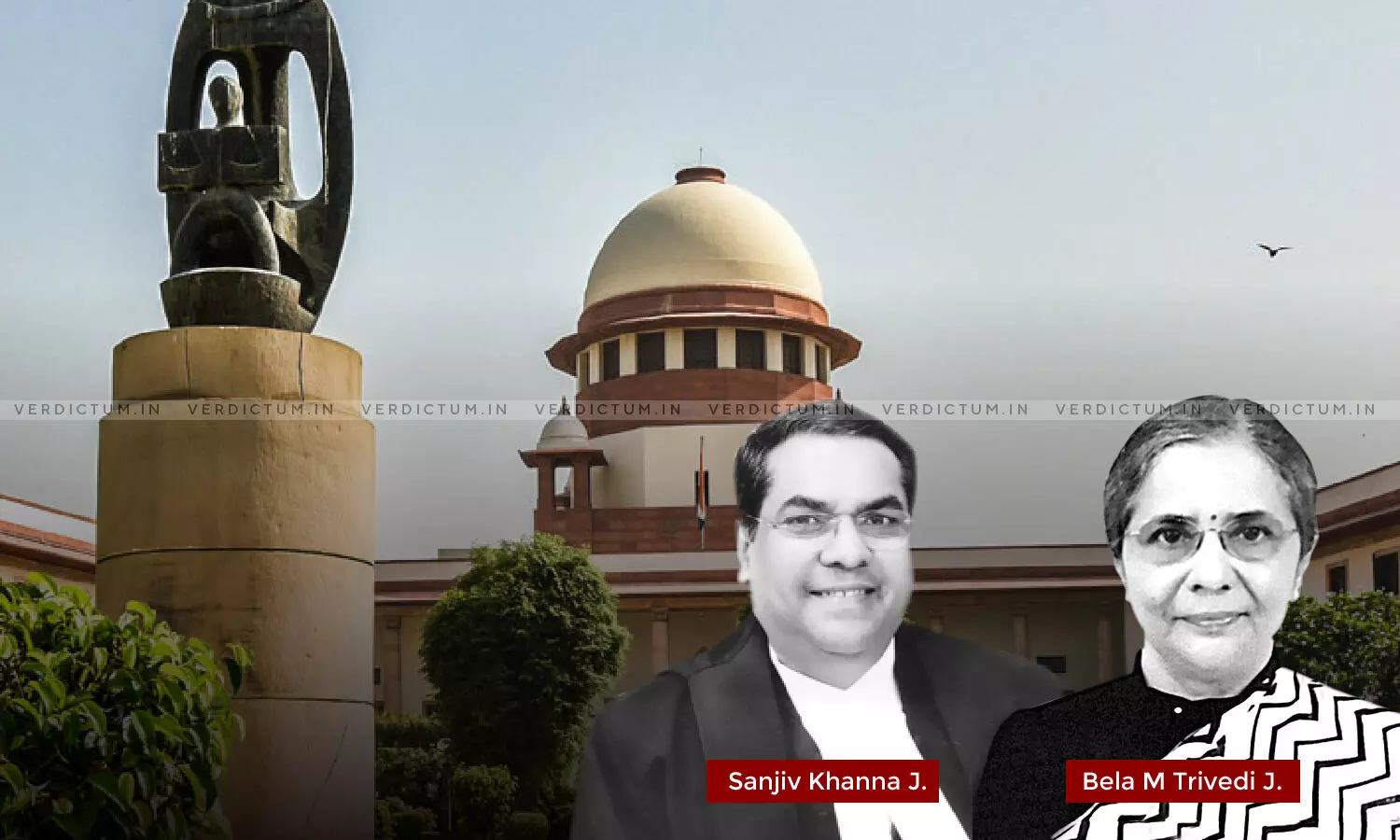
Apex Court Stays Delhi HC’s Order Directing Old Pension Scheme To Be Made Applicable To All Paramilitary Forces
 |
|The Supreme Court in a Special Leave Petition (SLP) challenging a Delhi High Court’s order directing the Old Pension Scheme to be applicable to all the personnel of CAPF (Central Armed Police Force) at large, has stayed the operation of the impugned judgment. The matter will be further heard in February 2024.
The batch of petitions was filed by the employees of different forces such as CRPF, SSB, CISF, ITBP, etc.
A bench of Justice Sanjiv Khanna and Justice Bela M. Trivedi while issuing, observed, “In the meanwhile, there will be stay of operation of the impugned judgment to the extent it directs that the Old Pension Scheme would be applicable to the para-military forces. We, however, clarify that the petitioners shall abide by the Office Memorandum no. 57/05/2021-P&PW(B) dated 03.03.2023 issued by the Department of Pension and Pensioners’ Welfare, Ministry of Personnel, Public Grievances and Pensions, and to that extent, the operation of the impugned judgment has not been stayed”.
Solicitor General Tushar Mehta, A.S.G. Aishwarya Bhati, Senior Advocate R. Bala appeared for the petitioners and Advocate Ankur Chhibber appeared for the respondent.
The petitioners in this case were appointed for the posts of Assistant Commandant under the NPS i.e., the New Contributory Pension Scheme. Such a scheme was implemented from the year 2004 via notification in the year 2003. But the said scheme was not applicable to the Armed Forces as the same was governed by the OPS i.e., the Old Pension Scheme.
The Ministry of Home Affairs (MHS) thereafter vide OM directed all the CAPFs to extend similar benefits of OPS to all affected personnel. Contrary to their own orders, the respondents vide order extended the benefit of OPS to only those personnel whose recruitment process was completed by 2003 but joined the force after 2004. The primary relief sought by the petitioners through the petitions was for the grant of OPS to the personnel, who have though been appointed after 2004, but had applied for the posts prior to 2004. The matter was therefore before the High Court.
A bench Justice Suresh Kumar Kait and Justice Neena Bansal Krishna of the Delhi High Court after hearing the contentions of both parties observed, “... we find that Notification dated 22.12.2003 as well as OM dated 17.02.2020 create a bar upon the respondents to not implement the Notification dated 22.12.2003, whereby New Contributory Pension Scheme (NPS) has been executed w.e.f. 01.01.2004, upon the personnel of the paramilitary Forces i.e. Central Reserve Police Force (CRPF), Sashtra Seema Bal (SSB), Border Security Force (BSF) and Central Industrial Security Force (CISF) Indo Tibetan Border Police (ITBP) (CAPFs) etc. Consequentially, the impugned Office Memorandums, Signals and Orders, to the extent it deny the benefit of Old Pension Scheme to the petitioners and similarly situated personnel of the armed forces, are hereby quashed.”
While noting that the CAPFs is an Armed Force of the Union as prescribed within Article 246 Schedule 7 of the Constitution of India and hence are not covered under the New Pension Scheme as provided in the notification thus all employees of CAPFs are to be governed by the Old Pension Scheme, the bench had further observed:-
“The Hon’ble Supreme Court and High Courts in various decisions have appreciated the role of armed forces in safeguarding our country. Having great respect for the personnel of forces, the Courts as well as Government of India, have always ensured that any policy decision should not be detrimental to their interest. The contents of Notification dated 22.12.2003 as well as OM dated 17.02.2020 clearly demonstrate that when policy decision to implement NPS was taken, the armed Forces of the country were kept out of its domain. Accordingly, we are of the considered opinion that the Notification dated 22.12.2003 as well as OM dated 17.02.2020 are required to be implemented in their true essence”.
Cause Title: Union Of India & Ors v. Pawan Kumar & Ors.